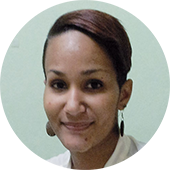
THE problems surrounding how sexual abuse is dealt with in St. Lucia stems from our perceptions of it, our reactions towards it and our general lack of knowledge about it. Many people don’t like to admit that our culture is not one that understands or empathises what happens to someone who has been a victim of a sexually violent crime. Our culture prefers silence and in many ways, demands’ survivors are silent for the sake of the family, or the perpetrator, but no-one takes the survivor into consideration. They do not understand the empowering but difficult step a survivor takes when the decision to speak out is made. Many don’t understand that this is the 1st step on the road to recovery. The fact that a survivor chooses to speak out should be an action we all encourage and celebrate. It takes a lot for a survivor to get ready to make that step; they should not be continuously silenced.
Many believe that by acknowledging that someone in their family is a survivor of sexual violence that they will be looked down upon and maybe gossiped about. We continuously treat it like a dirty little secret allowing sexual predators to continue sexually violating one person after another. We ensure that the sexual predator goes unpunished when we create an environment where survivors don’t feel they can come forward. We allow the cycle of abuse to continue, we allow the number of individuals one person sexually assaults to continuously rise when survivors don’t feel safe coming forward. A large part of helping those who have been sexually assaulted is ensuring that they do not feel alone, that they do not feel that this is their fault, that the perpetrator is brought to justice and not coddled by the family, society or the justice system.
We raise our children telling them to stay away from strangers, we tell our girls what to wear, when to go and come back, what to look out for. We rarely set the same parameters for our boys. We also neglect to ensure that they understand that when a girl says no it means no and that they should stop. If a girl/boy changes their mind at any point, they should stop; we all have the right to change our minds at any point. We raise our girls to be afraid of the random stranger that could attack them but we don’t tell them to beware of those closest to them, of the family friend, of the uncle/brother/aunt/father/mother. We don’t tell them that these are people that are also predators. We don’t tell them that most people, who are sexually assaulted, are assaulted by people they know.
The more we educate our children on every aspect of sexual assault the better chance we have of giving them the told to protect themselves, of them being able to spot danger and running in the opposite direction. We can’t believe that it won’t happen to us, or those that we know and care about, we have to be prepared. WE HAVE TO BE THE CATALYST THAT CREATES CHANGE.
Survivors of sexual assault need a supportive environment to begin the healing process. They need to believe and feel that they are part of a culture that doesn’t support individuals who commit sexual crimes. We have to be the difference we want to see in our country. We have to be willing to start to make change. We, at PROSAF, have acknowledged that violence against women is a problem in St. Lucia and the wider Caribbean. We are here to begin the metamorphosis that is desperately needed. We are always here to listen and if you are not ready to come forward but need a listening ear, feel free to contact us. Remember that Sexual assault is something that happens to people, it does not define them, it is something that was done to them. Survivors, Victims, Thrivers remember you are a strong, beautiful, intelligent woman/child/man who has suffered a trauma through no fault of your own. You are not guilty of any crime, something was done to you against your will Sexual Assault is something that happened to you, it does not define you. You are worthy of love and happiness. Always remember that you are not alone, that you have nothing to be ashamed of. We are taking the baby steps necessary to make it better for all. KNOW YOU HAVE A SAFE SPACE IN PROSAF. If you are interested in finding out more information about sexual violence and what you can do as part of this community, please feel free to contact us at:
Yours Sincerely,
Souyenne Dathorne, Velika Lawrence
Email: ssaitco@hotmail.com – thepowerofone_v@hotmail.com
Facebook: SURVIVING SEXUAL ABUSE IN THE CARIBBEAN: https://www.facebook.com/pages/PROSAF-Surviving-Sexual-Abuse-in-the-Caribbean/165341356853908
Webpage: http://www.prosaf.org (under construction)
Telephone: 1-758-724-9991(sue) 1-758-723-6466(vel)




![Simón Bolívar - Liberator of the Americas [Photo credit: Venezuelan Embassy]](https://thevoiceslu.com/wp-content/uploads/2025/12/Simon-Bolivar-feat-2-380x250.jpg)



